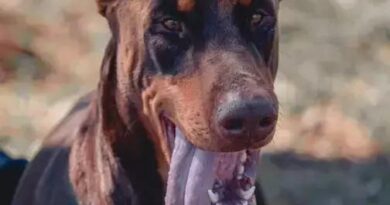O que é Queda de Peso
What is Weight Loss in Dogs?
Weight loss in dogs refers to the reduction of body weight, which can occur due to various factors including diet, exercise, and health conditions. It is essential to monitor your dog’s weight regularly to ensure they maintain a healthy body condition. Sudden or excessive weight loss can be a sign of underlying health issues, making it crucial for pet owners to understand the implications of weight loss in their furry companions.
Causes of Weight Loss in Dogs
There are numerous reasons why a dog may experience weight loss. Common causes include inadequate nutrition, dental problems, gastrointestinal disorders, and chronic illnesses such as diabetes or cancer. Additionally, stress and anxiety can lead to decreased appetite, contributing to weight loss. Understanding these causes is vital for pet owners to address the issue effectively.
Signs of Weight Loss in Dogs
Pet owners should be vigilant for signs of weight loss in their dogs. These signs may include a noticeable decrease in body mass, prominent ribs, and a sagging abdomen. Behavioral changes such as lethargy, decreased activity levels, and changes in eating habits can also indicate weight loss. Regular veterinary check-ups can help identify these signs early on.
Health Risks Associated with Weight Loss
Weight loss in dogs can lead to several health risks, including malnutrition, weakened immune function, and muscle wasting. If a dog loses weight rapidly, it may also experience dehydration and electrolyte imbalances, which can be life-threatening. Therefore, it is essential to consult a veterinarian if significant weight loss is observed.
How to Monitor Your Dog’s Weight
Monitoring your dog’s weight involves regular weigh-ins and visual assessments of their body condition. Pet owners can use a scale or visit a veterinary clinic for accurate measurements. Additionally, observing changes in your dog’s appearance and behavior can provide insights into their weight status. Keeping a record of your dog’s weight can help identify trends over time.
Dietary Considerations for Weight Loss
When addressing weight loss in dogs, it is crucial to evaluate their diet. Providing a balanced and nutritious diet tailored to your dog’s specific needs can help maintain a healthy weight. Consulting with a veterinarian or a pet nutritionist can guide pet owners in selecting appropriate food options and portion sizes to support their dog’s health.
Exercise and Weight Management
Regular exercise is vital for maintaining a healthy weight in dogs. Engaging in physical activities such as walks, playtime, and training sessions can help promote weight management. It is essential to tailor the exercise routine to your dog’s age, breed, and health status to ensure they remain active and healthy.
Veterinary Intervention for Weight Loss
If a dog experiences unexplained weight loss, veterinary intervention is necessary. A veterinarian can conduct a thorough examination, perform diagnostic tests, and recommend appropriate treatments based on the underlying cause of the weight loss. Early intervention can prevent further health complications and support the dog’s recovery.
Preventing Weight Loss in Dogs
Preventing weight loss in dogs involves maintaining a balanced diet, regular veterinary check-ups, and ensuring a healthy lifestyle. Pet owners should be proactive in monitoring their dog’s weight and behavior, making adjustments as needed. Providing a stress-free environment and addressing any health concerns promptly can also help prevent weight loss.



